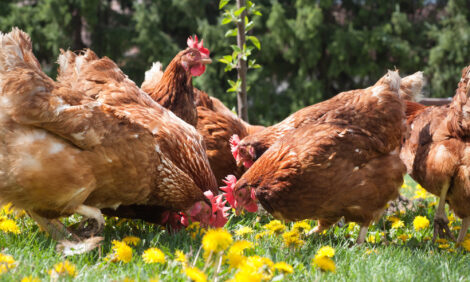



Research: Superdosing Phytase Reduces Severity of Woody Breast in Poultry
ANALYSIS - The exact cause of woody breast, a muscle myopathy affecting the quality, texture and colour of chicken breast meat, is currently unknown – although initial research points to genetics and fast growth rates.Tara York, technical manager with AB Vista, speaks to ThePoultrySite's Sarah Mikesell at IPPE in Atlanta.
"What we have found is that it's really building down to an oxidative stress due to some potential local hypoxia within the tissue," said Dr. Tara York, technical manager with AB Vista. So people say well what does phytase have to do with that and for us, we kind of fell into it inadvertently."
While conducting research on catfish, the AB Vista team found benefits of higher iron being released, which is important for hemoglobin and oxygen transport. The second component was related to an antioxidant component at the tissue level.
"We know that if we can break down phytate to pure inositol it gets rephosphorylated and accesses an antioxidant within the tissues," she said.
From there, they considered the benefit of superdosing phytase to bring a benefit.
"We ran studies combining superdosing with other things that support the oxidative status of the animal, such as organic zinc and Ethoxyquin, and what we found is that we're not going to eradicate woody breast by any stretch of the imagination, but we have been able to reduce the severity of the woody breast which is quite important," Dr. York said.
Producer Perspective
"Producers are struggling every day with woody breast," said Dr. York. "I was talking to someone today who was saying that even in their larger birds they're still seeing about 30 per cent of the most severe forms of woody breast, which are twos and threes."
AB Vista's research findings indicate that when supporting the oxidative status of the animal through superdosing and combining it with other trace minerals and Ethoxyquin, it's possible for producers to decrease the woody breast levels of twos and threes by about 50 per cent.
Decreasing severity is a big step forward because producers are getting push-back from their customers who don't want to buy meat with a woody breast component, she said.










